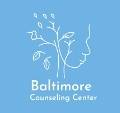Trauma
- Home
- /
- Counseling services
- /
- Trauma

Comprehensive PTSD Treatment at Baltimore Counseling Center
Post-Traumatic Stress Disorder (PTSD) is a condition that can profoundly disrupt an individual’s entire life—impacting their emotions, relationships, and even physical health. At Baltimore Counseling Center, we understand the far-reaching effects of PTSD and are dedicated to offering effective, compassionate treatment to individuals and couples struggling with this disorder in the Baltimore area. In this article, we will guide you through the services we provide, our therapeutic approaches, and how we can help you or your loved one embark on the journey toward recovery. Our goal is to offer a supportive environment where healing can truly begin, and where every individual is given the tools and support they need to reclaim their life from PTSD.
What is PTSD?
Post-Traumatic Stress Disorder (PTSD) is a mental health condition that’s triggered by experiencing or witnessing a terrifying event. Symptoms may include flashbacks, nightmares, severe anxiety, as well as uncontrollable thoughts about the event. Many people who go through traumatic events may have temporary difficulty adjusting and coping, but with time and good self-care, they usually get better. If the symptoms get worse, last for months or even years, and interfere with day-to-day functioning, they may have PTSD.
PTSD can occur in people of any ethnicity, nationality, or culture, and at any age. It develops as a reaction to physical or psychological trauma, and the type of events that can lead to PTSD include but are not limited to, violent personal assaults such as sexual assault or robbery, natural or human-caused disasters, accidents, or military combat. Not everyone who experiences such events will develop PTSD, however; the chance of developing this condition depends on a combination of factors including personal history, neurobiological makeup, and the nature of the traumatic event.
The treatment for PTSD typically includes psychotherapy, medication, or a combination of the two. Therapy aims to help people manage their symptoms, understand and change how they think about their trauma, and learn coping strategies to handle stressful situations more effectively.s

Our PTSD Treatment Approaches
At Baltimore Counseling Center, we employ a variety of advanced therapeutic techniques tailored to meet the specific needs of individuals suffering from Post-Traumatic Stress Disorder (PTSD). Our treatment approaches are grounded in evidence-based practices known for their effectiveness in treating trauma and related conditions. Here are some of the key methodologies we utilize:
- Cognitive Behavioral Therapy (CBT): This therapy is fundamental in helping individuals understand and change the thought patterns that are contributing to their PTSD symptoms. CBT is effective in addressing negative thought cycles, reducing the occurrence of flashbacks and anxiety.
- Eye Movement Desensitization and Reprocessing (EMDR): EMDR is a unique, interactive psychotherapy technique used to relieve psychological stress. It is an effective treatment for trauma and PTSD. During EMDR therapy sessions, patients briefly relive specific traumatic experiences while the therapist directs their eye movements, which helps the brain process the traumatic memories and reduce their harmful effects.
- Prolonged Exposure Therapy: This approach involves repeated, detailed imagining of the trauma or progressive exposure to real-life situations that trigger memories of the trauma. The goal is to help reduce the emotional response to trauma memories.
- Group Therapy: We offer group therapy sessions that provide a supportive environment where individuals can share their experiences and learn from others facing similar challenges. Group therapy helps to normalize feelings, build resilience, and foster a sense of community.
- Mindfulness and Stress Reduction Techniques: These practices are incorporated to help individuals develop greater awareness and presence of mind, reducing overall stress and improving emotional regulation.
- Psychodynamic Psychotherapy: This therapy focuses on understanding and resolving the emotional conflicts that are driving or worsening PTSD symptoms, often by exploring past life events that may be connected to current distress.
- Medication Management: While not a standalone solution, medication can be prescribed as part of a comprehensive treatment plan to help alleviate some of the psychological symptoms associated with PTSD, such as severe anxiety and depression.
At Baltimore Counseling Center, we believe in a holistic approach to treatment that not only addresses the symptoms but also helps individuals build the tools they need for long-term stability and well-being. Our experienced therapists work closely with each client to create a personalized treatment plan that best suits their individual circumstances and promotes recovery in a safe, supportive environment.

About Baltimore Counseling Center
Baltimore Counseling Center has been an integral part of the Baltimore community for over a decade, serving as a sanctuary for healing and personal growth. Our boutique mental health practice is dedicated to providing individual and couples therapy in a confidential and nurturing environment. Here, clients can safely explore and confront their struggles under the guidance of our highly skilled therapists. Our team is not only expertly trained in their respective fields but also deeply committed to the wellness of each person who walks through our doors. We pride ourselves on our empathetic approach and our ability to create a space where individuals feel supported throughout their journey towards healing. At Baltimore Counseling Center, we believe in the power of therapy to transform lives, and we are here to support every step of that transformation.
Why Choose Baltimore Counseling Center
Choosing the right treatment center for PTSD is crucial to a successful recovery. Baltimore Counseling Center offers several distinct advantages that make it an excellent choice for individuals seeking help with PTSD:
Experienced
Therapists
Our team comprises highly skilled and compassionate therapists who specialize in treating PTSD and other mental health issues. They are well-versed in the latest therapeutic techniques, including Cognitive Behavioral Therapy (CBT) and Eye Movement Desensitization and Reprocessing (EMDR), ensuring that each patient receives the most effective care tailored to their specific needs.
Personalized Care
At Baltimore Counseling Center, we understand that each person’s experience with PTSD is unique. That’s why we offer personalized treatment plans designed to meet the individual needs and goals of each patient. Our therapists work closely with you to develop a plan that addresses your specific symptoms and circumstances.
Supportive
Environment
We believe that a supportive, safe, and confidential environment is critical for successful treatment. Our center is designed to provide a calm and welcoming atmosphere where patients can feel secure and comfortable exploring their thoughts and emotions.
Holistic
Approach
We recognize the importance of treating the whole person, not just the symptoms. Our holistic approach includes a variety of therapeutic modalities to support both mental and physical health, helping patients to regain balance and enhance their overall well-being.
Community
Engagement
Beyond individual therapy, Baltimore Counseling Center fosters a sense of community among its patients. We offer group therapy sessions and workshops that provide opportunities for patients to connect with others who share similar experiences, fostering mutual support and understanding.
Accessibility
and Flexibility
Understanding the busy lives of our patients, we offer flexible scheduling options to accommodate different lifestyles and responsibilities. We are committed to making our services accessible to all who need them.
Commitment to
Confidentiality
Our patients’ privacy and trust are paramount. We adhere to strict confidentiality protocols to ensure that all patient information is protected and secure.
Choosing the Baltimore Counseling Center means opting for a compassionate, professional, and supportive environment that prioritizes your mental health and well-being. We are dedicated to guiding you through your recovery journey with expertise and care, every step of the way.
Meet Our Team at Baltimore Counseling Center
At Baltimore Counseling Center, we are proud to have a team of dedicated professionals who are committed to providing the highest quality care and support to our clients. Here’s a brief introduction to our key team members:

Jeffrey Aviles, Founder and CEO
Jeffrey Aviles is the visionary founder and CEO of Baltimore Counseling Center. With a passion for mental health advocacy and a deep commitment to helping others, Jeffrey has dedicated his career to creating a therapeutic environment that promotes healing and personal growth. Under his leadership, the center has flourished into a respected institution known for its compassionate care and effective treatment approaches. His philosophy centers around understanding individual needs and fostering a supportive community that aids in the recovery process.
Shawn Rill, Therapist
Shawn Rill is a pivotal member of our therapy team, known for his expertise in treating PTSD and other trauma-related disorders. With a master’s degree in clinical psychology and several years of experience in both private practice and community mental health settings, Shawn brings a wealth of knowledge and a nuanced understanding of trauma to his sessions. He is particularly adept at using Cognitive Behavioral Therapy (CBT) and Eye Movement Desensitization and Reprocessing (EMDR) to help clients navigate their healing journeys. Shawn’s empathetic approach and commitment to tailoring therapy to each client’s unique needs make him a trusted and valued therapist at our center.

Together, Jeffrey and Shawn form the backbone of Baltimore Counseling Center, ensuring that every client receives the personalized care and attention they need to move forward in their recovery. Their combined expertise and dedication are what set our center apart as a leader in mental health services in Baltimore.
How PTSD can affect your life?
Post-Traumatic Stress Disorder (PTSD) can profoundly impact nearly every aspect of an individual’s life. It often manifests after someone has experienced or witnessed a traumatic event, such as violence, a severe accident, or a natural disaster. Those suffering from PTSD may experience invasive memories or flashbacks that disrupt their daily activities and personal interactions. This can lead to a state of heightened anxiety, sleep disturbances like nightmares, and a persistent sense of danger, all of which strain personal relationships and can lead to isolation. In the workplace, PTSD can decrease concentration, diminish performance, and increase absenteeism. Socially, the condition might cause individuals to withdraw from friends and family, fostering a sense of loneliness and misunderstanding. Emotionally, it can result in mood swings, irritability, and a profound sadness, making it difficult to enjoy previously cherished activities. The cumulative effect of these changes can challenge the core of an individual’s identity and sense of stability in the world.
What are the benefits of PTSD treatment?
Treatment for Post-Traumatic Stress Disorder (PTSD) offers numerous benefits that can significantly enhance the quality of life for those affected. Here are some key advantages:
Reduction in Symptoms
Effective PTSD treatment helps reduce the intensity and frequency of symptoms such as flashbacks, nightmares, and severe anxiety. This makes daily life more manageable and less dominated by past trauma.
Improved Emotional Regulation
Therapy can teach individuals how to handle intense emotions such as anger, sadness, and fear more effectively. This is crucial for maintaining stable relationships and for the overall emotional well-being of the person.
Restored Sense of Control
PTSD often leaves individuals feeling powerless over their minds and bodies. Treatment helps them regain control and reduces feelings of helplessness, enhancing their autonomy and self-esteem.
Better Relationships
By addressing the issues that PTSD introduces in personal relationships, treatment can help individuals interact more positively with friends, family, and colleagues. This improvement often comes from better communication skills and enhanced emotional understanding.
Increased Enjoyment in Life
As individuals progress in treatment, they often find it easier to enjoy activities they used to love and discover new interests. This renewal of joy can be a critical step in the recovery process.
Prevention of Negative
Coping Mechanisms
Without treatment, people with PTSD might turn to unhealthy coping strategies, such as substance abuse or self-isolation. Treatment helps by providing healthy strategies for coping with stress and trauma.
Support and Validation
PTSD treatment environments provide a safe space where individuals can feel understood and supported. This is particularly important for healing and can be very empowering.
Improved Physical Health
The stress of PTSD can have serious physical consequences, including high blood pressure, heart disease, and other stress-related illnesses. Treatment can reduce stress and improve overall physical health.
These benefits together highlight the significant positive impact that PTSD treatment can have, not just on the mental health of an individual, but also on their physical health, social life, and overall ability to engage with the world.
What are the 7 symptoms of PTSD?
Post-Traumatic Stress Disorder (PTSD) can manifest in various symptoms, which can be grouped into several key categories. Here are seven common symptoms typically associated with PTSD:
- Intrusive Memories: This includes recurrent, unwanted distressing memories of the traumatic event, flashbacks (reliving the trauma as if it were happening again), and nightmares related to the traumatic incident.
- Avoidance: Individuals may avoid places, activities, people, and situations that remind them of the traumatic event. They might also avoid thinking or talking about the event.
- Negative Changes in Thinking and Mood: This can include negative thoughts about oneself or others, feelings of hopelessness about the future, memory problems (especially not remembering important aspects of the traumatic event), difficulty maintaining close relationships, and feeling detached from family and friends.
- Emotional Numbness: This often involves a lack of interest in activities previously enjoyed, feeling detached or estranged from others, or a reduced ability to experience positive emotions.
- Increased Arousal and Reactivity: Symptoms in this category can include being easily startled or frightened, always being on guard for danger, self-destructive behavior (such as drinking too much or driving too fast), trouble sleeping, and irritability or angry outbursts.
- Concentration Problems: Many people with PTSD find it hard to concentrate on their work or daily activities. They may be preoccupied with the trauma or their hyper-vigilance may disrupt their ability to focus.
- Physical Symptoms: These can include sweating, shaking, headaches, dizziness, stomach problems, and other physical signs of stress. Often these symptoms are triggered by reminders of the trauma.
These symptoms can severely impact an individual’s daily life and functioning, making it difficult to work, pursue interests, or maintain relationships. Effective treatment, which may include therapy and medication, is crucial in helping those with PTSD regain control over their lives.
FAQ (frequently asked questions)

Conclusion
At Baltimore Counseling Center, we understand the profound impact PTSD can have on an individual’s life and the importance of comprehensive, empathetic care in the recovery process. Our diverse range of evidence-based therapeutic approaches, from Cognitive Behavioral Therapy and EMDR to group sessions and mindfulness practices, are designed to address the multifaceted nature of PTSD. Each treatment plan is meticulously tailored to meet the personal needs and goals of our clients, supported by a team of dedicated professionals who are committed to your journey of healing.
Choosing to seek help is a courageous first step towards reclaiming your life, and at Baltimore Counseling Center, we are here to support you every step of the way. We believe in not just overcoming trauma but also in empowering our clients to thrive beyond their PTSD symptoms. If you or a loved one are struggling with PTSD, do not hesitate to reach out to us. Let’s take that first step together towards a more peaceful and fulfilling life. Contact us today to begin your journey to recovery.
